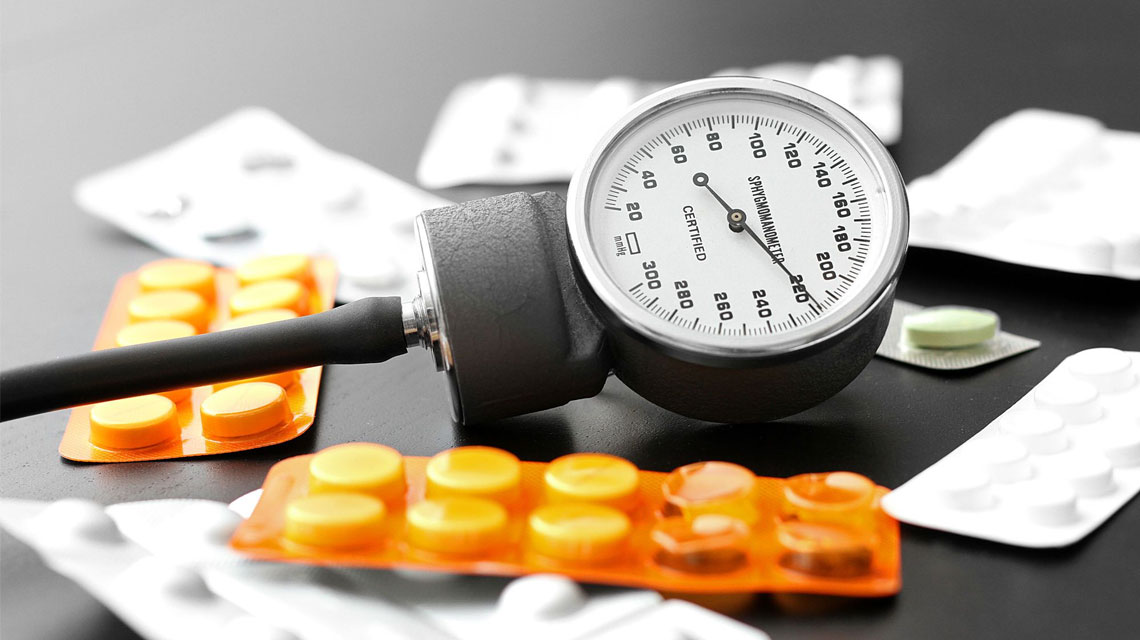Blood Pressure Medication List and Their Generic Names
By Charlie ParsonsFeb 01, 202125918

High blood pressure, or hypertension, is a chronic medical condition characterized by an increased force of the blood against the arterial walls. It is defined as a blood pressure of more than 140/90 mmHg. It is considered severe if your blood pressure is more than 180/120 mmHg.
Most people with hypertension often have no symptoms. Over time, if left untreated, high blood pressure can lead to serious health issues, such as stroke, heart attack, and even kidney failure. One can manage high blood pressure by eating a healthier diet, limiting salt intake, exercising regularly, managing stress, and taking appropriate medications.
High blood pressure medications include drugs that belong to different classes and types, such as angiotensin-converting enzyme (ACE) inhibitors, angiotensin receptor blockers (ARBs), beta-blockers, calcium channel blockers (CCBs), alpha-blockers, alpha-beta blockers, diuretics, and clonidine and minoxidil.
This article will provide a list of high blood pressure medications and their brand and generic names.
Angiotensin Receptor Blockers (ARBs)
ARBs inhibit the action of angiotensin II (a hormone) by preventing angiotensin II from adhering to angiotensin II receptors on the small muscles of the blood vessels. Eventually, this helps in dilating the blood vessels, reducing blood pressure. Common side effects of ARBs include cough, low blood pressure, fatigue, headache, indigestion, or diarrhea. Brand and generic names for ARBs include:
- Cozaar (losartan)
- Avapro (irbesartan)
- Diovan (valsartan)
- Benicar (olmesartan)
- Edarbi (azilsartan)
- Micardis (telmisartan)
Angiotensin-Converting Enzyme (ACE) Inhibitors
ACE inhibitors block the activity of the enzyme called angiotensin-converting enzyme (ACE), which is important for managing blood pressure. It works by dilating the blood vessels and improving the overall blood flow. Common side effects of ACE inhibitors include cough, low blood pressure, fatigue, and headache. Brand and generic names of ACE inhibitors include:
- Zestril (lisinopril)
- Vasotec (enalapril)
- Lotensin (benazepril)
- Accupril (quinapril)
- Altace (ramipril)
Beta-Blockers
Beta-blockers block the secretion of norepinephrine and epinephrine to reduce blood pressure by dilating the arteries and reducing heart rate. Common side effects of beta-blockers include fatigue, dizziness, dyspnea, sexual impotence, or low blood pressure. Some of the brand and generic names of beta-blockers include:
- Tenormin (atenolol)
- Zebeta (bisoprolol fumarate)
- Coreg (carvedilol)
- Lopressor Generic (metoprolol)
Calcium Channel Blockers (CCBs)
CCBs help in inhibiting the movement of calcium into muscle cells, reducing the force of the heart’s muscular pumping action and eventually blood pressure. They also work by relaxing the muscle cells of the blood vessels to reduce blood pressure. Some of the mild side effects of CCBs include water retention (edema), constipation, shortness of breath, and headache. Some examples of brand and generic names of CCBs include:
- Norvasc (amlodipine)
- Claviprex (clevidipine)
- Cardizem(diltiazem)
- Procardia (Nifedipine)
- Cardene (nicardipine)
- Calan (verapamil)
Diuretics
Diuretics, aka water pills, are the oldest known medications for controlling high blood pressure. They promote the removal of salt from the body through the kidneys. Common side effects of diuretics include dehydration, low potassium, low blood pressure, fatigue, elevated blood sugar levels, among others. Some of the most commonly used diuretics include:
- Hydrodiuril (Hydrochlorothiazide)
- Thalitone (chlorthalidone)
- Lasix (furosemide)
- Bumex (bumetanide)
- Demadex (torsemide)
Alpha-Blockers and Alpha-Beta blockers
There are alpha-receptors on muscles surrounding the blood vessels. Stimulating alpha-receptors causes the muscles surrounding the blood vessels to contract, increasing the blood pressure. By blocking the alpha-receptors, alpha-blockers help in relaxing the muscles and eventually lowering blood pressure.
Alpha-beta blockers and alpha-blockers have the same mechanism of action. Mild side effects of alpha-blockers include low blood pressure, dizziness, nausea, or weakness. Brand and generic names of alpha-blockers include:
Cardura (doxazosin)
- Hytrin (terazosin) – discontinued in the US
- Coreg (carvedilol)
- Trandate (labetalol)
Clonidine
Sold under the brand name Catapres, clonidine works on the nervous system to reduce high blood pressure. It inhibits transmission to nerves outside of the brain, thereby reducing blood pressure and heart rate. Common side effects of clonidine are low blood pressure, drowsiness, and headache.
Uncontrolled hypertension can lead to life-threatening health problems, such as stroke, heart attack, heart failure, and kidney failure or kidney disease. Therefore, treating high blood pressure is extremely important in preventing these serious problems.
There are different types of high blood pressure medications available in the market. These drugs are also called antihypertensive agents. Your doctor is the right person to put you on appropriate medications to control your blood pressure. Doctors also advise limiting sodium in your diet, eating healthy foods, exercising regularly, and managing stress.
High Blood Pressure: Prevention
People can take steps to prevent hypertension if they have risk factors for the condition by making certain lifestyle changes.
- Include healthy foods in your diet
You must slowly work your way up to include heart-healthy foods in your daily diet. Make sure you more fruits and vegetables every day. Limit red meat intake. Restrict sodium intake. Limiting salt intake helps prevent high blood pressure in most cases.
It is important to limit sugar and sweetened foods, including sugary-flavored yogurts, cereals, sodas, etc. Refined and packaged foods may contain a lot of sugar, so make sure you check the labels before using any.
If you are obese or overweight, lose weight and talk to your doctor about how to maintain a healthy weight. Exercise regularly and eat healthy foods to shed those extra pounds.
- Check your blood pressure regularly
One of the best ways to prevent hypertension and its complications is to monitor your blood pressure regularly so it can be diagnosed early for medical intervention. You can visit your PCP for a blood pressure reading. You can even buy a blood pressure cuff, take your readings at home, and keep a log of your readings.